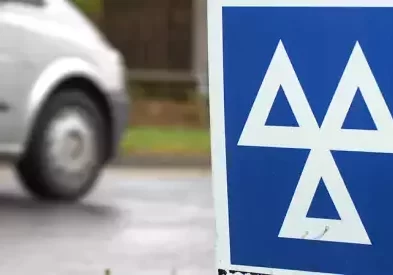Insight

Is this the end of diesel power?
On the 3rd April, the Mayor of London, Sadiq Khan, announced new proposals meaning that drivers of diesel vehicles will soon have to pay a £20 per day T-Charge, a so called ‘Toxin Tax’ as part of several new initiatives designed to clean up London’s air and discourage drivers from diesel.
It’s also anticipated that similar ‘anti-diesel’ charges and Ultra Low Emissions Zones will spread to other urban centres across the UK, hitting the oldest and most polluting vehicles on the road, with the long term aim of pushing drivers to cleaner fuels. But is this a good move?
“the seemingly inevitable decline of diesel.”
As petrol heads, dirty diesel is not something we’re particularly fond of. Sure, the traditional rattle and agricultural soundtrack has vastly improved over the decades. The engineering quality behind many of the diesels, particularly those powering premium vehicles, is first rate, but for many it still can’t quite beat petrol, other than when it comes to cost.
As car enthusiasts then we’re not concerned with the seemingly inevitable decline of diesel. But as consumers? That’s where the worry may lie.
It cannot be denied that motorists were encouraged to buy diesels by previous governments. A cycle emerged and manufacturers followed suit by focussing on diesel power and lower CO2 emissions leading to one in two new cars purchased powered by diesel.
Diesel vehicles in urban areas are clearly part of a problem of poor urban air quality that needs to be tackled. But should the average diesel driver who bought a car in good faith be hit in the wallet by proposed changes? From our point of view the majority won’t be.
“a pure electric BMW M car, ‘unavoidable’ “
Flicking through the pages of this week’s motoring mags, car brands are accelerating plans for more alternatively fuelled cars. Skoda will launch five all electric cars by 2025, Jaguar is launching an electric SUV, and there’s even talk of a pure electric BMW M car, ‘unavoidable’ according to BMW’s performance arm boss, Frank Van Meel.
This is clearly good news for everyone. Exciting new products for the industry and enthusiasts, cheaper running costs and more efficient models for drivers across the market filling the diesel gap, and cleaner air for people living in urban areas. Plus with Theresa May promising that clean air plans won’t punish drivers of older diesel cars, the concern that many industry commentators have is misguided.
So view the proposed ‘hit’ on diesel cars as a positive opportunity for all, accelerating talk and trends for increased purchase of cleaner cars that has been under discussion for years, hopefully making them cheaper to buy without increased costs for the average driver.



